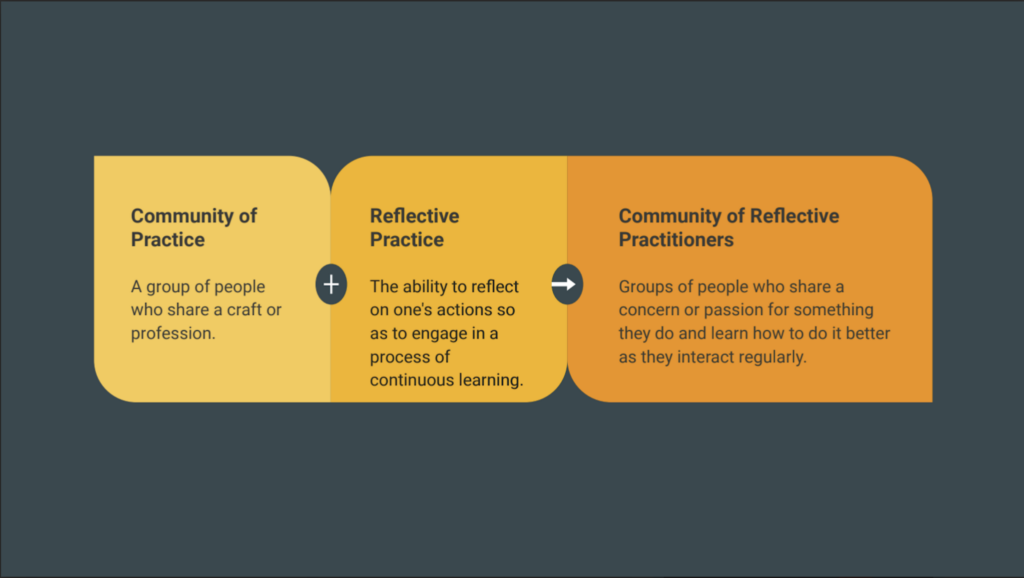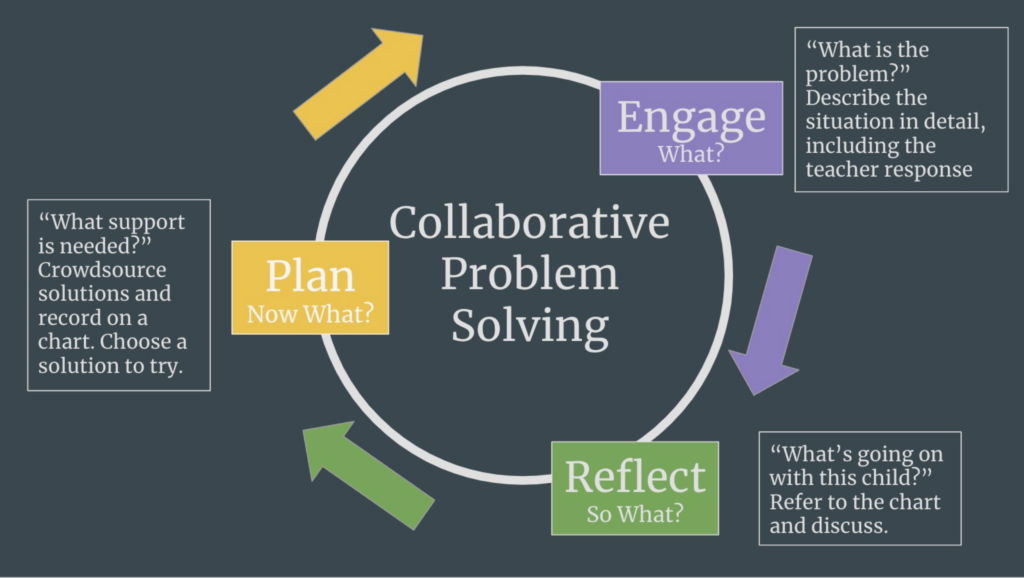Greensboro Montessori School hosted two teacher workdays this fall, each dedicated on professional development. Classrooms were closed giving our team uninterrupted time to focus on learning new skills and growing as educational professionals. So how did the team use their time?
During our September 20 workday, faculty paused to reflect on the work we do with students every day and our approach to guiding them in their meaningful work. Nancy VanWinkle, instructional coach, and Jessica White Winger, director of student support, led a workshop designed to build teachers’ tool sets for preparing the environment, particularly expanding the resources of the prepared teacher. The theme was building a “Community of Reflective Practitioners,” with a focus on leveraging the collective experience of the educators in the room.

Teachers worked in mixed-division groups, with varying years of experience in the field. The morning opened with a grounding activity in which teachers were shown photographs of individuals who have affected positive change in the world. These individuals have raised awareness around difficult issues, often putting their lives and work at risk to do the “right” thing. Teachers were asked to work with their groups to list the qualities of one of those changemakers. Following a share-out, the group reflected on how we can encourage these qualities in all of our students. This impactful exercise grounded us in the knowledge that each child is under “self construction” and we have the big responsibility of allowing their true light to shine, while helping guide them in becoming their best self.
Following this exercise, Nancy and Jessica shared what resources and experiences they have to support teachers during the 2023-24 school year. As our instructional coach, a role dedicated to support faculty in their professional development, Nancy worked closely with Jessica to design a collaborative problem-solving approach for schoolwide implementation. The model offers teachers a practical tool for seeking input from one another and leveraging the cumulative knowledge of our faculty and staff.
This collaborative problem-solving model has teachers sharing a specific behavior they are experiencing with a child in their classroom. A group of educators, with one facilitator and one recorder, reflects on the overall question, “What’s going on with this child?” and what are the unmet needs, lagging skills, or obstacles that the student might be encountering? By looking at the heart of the issue, we honor the child and seek to better understand what their behavior is telling us. The facilitator then takes the group through a series of brainstorming questions, while the recorder writes strategies and suggestions. In the end, the teacher chooses a strategy to try out for a week and agrees to report back to the group. At that point, they may revisit the brainstorm and select another strategy to try.

After modeling this process for everyone, teachers split into their mixed-division groups to practice the model. The value of this collaborative approach is vast, as it’s an opportunity for teachers to gain new perspectives and insight, helping create a shift in paradigm and introducing new ways of responding to student needs. It’s about connecting with colleagues and taking a child-centered approach, as much as it’s about reflecting on our own vulnerabilities and finding strength in the process. It is not about “fixing” a behavior, but opening ourselves to trying new approaches and embracing the spirit of the child.
During our October 6 teacher workday, our group of reflective practitioners reunited to share how our new system of collaborative problem solving is helping them in the classroom. Mixed-division groups reported out on strategy successes and areas of growth. More teachers had the opportunity to share a new challenge with their groups and seek strategies to try. Faculty feedback for this process has been overwhelmingly positive, and we are excited to be working closely together to authentically support students and to address their most critical needs.
Teachers spent the latter half of the workday looking at the scope and sequence of their Montessori curriculum, evaluating it with a fine-toothed comb to ensure fidelity and best-practice in every classroom. This “big work” is just one more way we are reflecting on our practice and ensuring that every student at GMS is engaged in meaningful work as they progress from Toddler through Junior High.
Through intentional planning, we make professional development at GMS relevant and meaningful. We consistently follow-up with faculty to ensure we are meeting their needs and supporting their professional growth. From workshops, trainings, and conferences to observations at other schools, professional development offers inspiration and connection for GMS teachers.


